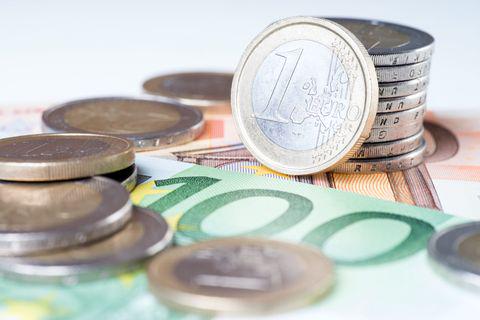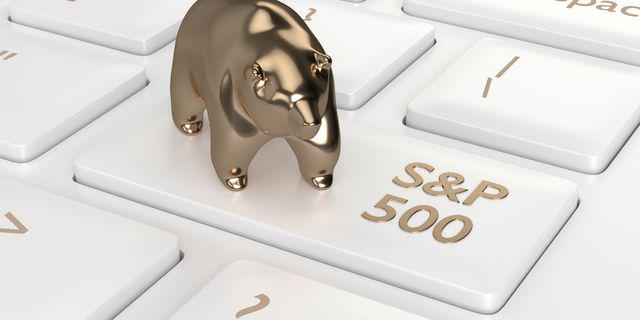
Recently, for the first time in two decades, the euro reached parity with the US dollar…

Don’t waste your time – keep track of how NFP affects the US dollar!
Data Collection Notice
We maintain a record of your data to run this website. By clicking the button, you agree to our Privacy Policy.

Beginner Forex Book
Your ultimate guide through the world of trading.
Check Your Inbox!
In our email, you will find the Forex 101 book. Just tap the button to get it!
Risk warning: ᏟᖴᎠs are complex instruments and come with a high risk of losing money rapidly due to leverage.
68.53% of retail investor accounts lose money when trading ᏟᖴᎠs with this provider.
You should consider whether you understand how ᏟᖴᎠs work and whether you can afford to take the high risk of losing your money.
Information is not investment advice
If you want to start investing or trading, this guide will be perfect for you! After reading it, you will know the difference between investing and trading, learn investment types, get some valuable tips, and finally, find out what trading instruments are good personally for you! Let's get started!
Let's look at the difference between trading and investing. First, there is no need to choose only investing or only trading. You can mix both of these approaches if you want to! Of course, the primary purpose of these approaches is profit, but they pursue that goal in different ways.
Trading is about buying and selling assets for short-term goals, focusing on their intraday price changes. So, traders tend to open trades and hold positions for days, hours, and even minutes! Moreover, they often focus on technical analysis rather than fundamental factors. It means they mostly make trading decisions by looking at the price charts and finding patterns. Besides, traders can trade on news and economic releases of different countries.
Whereas investing is about buying and holding assets for long-term gains. Investors purchase the assets with the highest potential to grow and hold these positions for weeks, months, and even years. In addition, investors tend to rely more on fundamental factors than technical ones. In other words, they base investing decisions on economic events and financial news analysis, in the case of stocks – company's news, earnings results, product launches, etc.
|
Trading |
Investing |
|
|
Actions |
Open both buy and sell orders |
Buy, hold, then take profit at highs or hold for longer |
|
Source of Data |
Price charts |
Economic releases, news, events |
|
Entry Signals |
Price formations and technical indicator signals |
Buy when the asset becomes undervalued or sell when the asset becomes overvalued |
|
Time Horizon |
The position is held for days, hours, minutes, seconds (short term) |
Position is held for days, weeks, months, years (long term) |
|
Analysis |
More technical than fundamental |
More fundamental than technical |
Well, there is a wide variety of financial assets. That's why beginners can become confused. To eliminate the anxiety on newbies and make things a bit simpler, we've created a list of must-know investment types with brief explanations.
Forex (FX) or foreign exchange is the marketplace for buying and selling currencies of different countries against each other. There is no way to trade a currency one-sidedly. Trading is a relative process — when someone buys, someone sells. Thanks to the difference between these transactions, traders benefit.
Pros
Cons
To eliminate the possible risks, traders should learn risk management. It's a set of specific rules that traders should follow to minimize potential losses. If the newbies apply them from the beginning, they will have more chances to become successful!
A stock or share is a type of security that signifies proportionate ownership in the issuing corporation. In other words, if you own a stock of Apple Inc., it means that you own a tiny part of the iPhone maker.
You may find the full list of available stocks in FBS on our website.
Pros
FBS clients trade stocks with a special type of contract based on the price of a particular stock. It allows traders to benefit from the difference between the entry and exit prices. As a result, you can open both buy and sell trades like in the Forex market, while traditional stocks allow profiting only on rising prices. Besides, you can use leverage while trading stocks.
Cons
Stocks are available for trading during limited hours. FBS offers US, UK, and German stocks. Since FBS offers stocks from different stock exchanges, it is useful to see the instrument open hours in your trading platform (FBS Trader or MetaTrader 5).
Note that you can not trade stocks with MetaTrader 4. Use MetaTrader 5 and the FBS Trader app!
A stock index is a benchmark that measures several stocks' performance. For example, the well-known S&P 500 includes the 500 largest companies listed on stock exchanges in the United States. By the way, the S&P 500 index is widely viewed as the top gauge of US stocks. However, there are plenty of other stock indices. Below, you can find a list of the major indices that you can trade with FBS.
NASDAQ 100 Index (US100) - a benchmark for the US tech stocks
FTSE 100 Index (UK100) - an index of 100 top companies in the UK
Nikkei 225 (JP225) - the leading index of Japanese stocks
Check out the full FBS indices list, where you can also find all the short names for stock indices. For example, the S&P 500 is US500, while Dow Jones is US30, etc.
Pros
Stock indices are among the safest investments as they are already well-diversified portfolios. It simply means having a range of various assets to minimize the risks of unexpected price movements of one asset. Therefore, indices are more sustained to unexpected market shocks than individual stocks and thus considered as lower-risk investments.
Cons
Indeed, indices tend to bring smaller gains than riskier stocks. It's a price to pay for the lower risk.
Crude oil and natural gas make up the group of energies. There are two types of oil: Brent Crude Oil (BRN) and West Texas Intermediate (WTI). Brent oil is refined in Northwestern Europe and widely delivered to the US Gulf, East Coasts, and the Mediterranean. It serves as an international benchmark grade. WTI is the grade for the US, although it is pretty high in demand in China. BRN and WTI tend to move together. That's why their price charts are almost identical.
Pros
Cons
Energies are not so volatile as currency pairs during some periods.
Gold and silver are known as precious metals. Gold or XAU/USD (the name of the trading instrument) is one of the favorite assets of traders worldwide. Silver tends to move in one direction with gold. However, the interest in silver is considerably lower than in yellow metal.
The metals, especially gold, are safe-heaven assets in a time of economic uncertainty. As a rule, precious metal prices go up if there is a recession and drop if the economic conditions improve.
Besides, gold and silver have a strong negative correlation with the US dollar. Thus, when the greenback rises, metals tend to fall and vice versa.
Pros
Cons
The disadvantages of trading metals are the same as for Forex. They are mentioned above in the block about Forex.
Cryptocurrencies are now being highly accepted as a viable alternative to fiat currency. Furthermore, traders can use it as a trading instrument or payment method to fund their accounts. Apart from Bitcoin – the most famous crypto, there are many other coins: Litecoin, Ethereum, XRP, etc.
Pros
The main feature of crypto is high volatility. Some traders adore it, others – hate. Indeed, daily Bitcoin price changes are usually greater than currency pairs like EUR/USD or USD/JPY. As Bitcoin's price makes bigger moves, it means that you can profit more and faster.
It's one of the best ways to diversify the investment portfolio. The study of Yale reports that 6% of every portfolio should be in Bitcoin to achieve optimal construction.
Cons
Some traders adore the high volatility of crypto. Others hate it. Indeed, the wild fluctuations of crypto can be risky for inexperienced traders.
The certificate of deposit is the simplest and safest investment a person can make. Investors know precisely from the beginning what interest they'll earn. Unfortunately, these interests tend to be significantly lower than returns from other investment types.
A bond is a debt instrument. In short, it is a loan made by an investor to a borrower. Companies issue corporate bonds, while governments issue government bonds. For example, the US Treasury issues Treasury bonds.
An option is a contract that gives the buyer the right, but not the obligation, to buy or sell a stock or other security at a specific price at a given time.
A mutual fund is a pool of investors' capital invested in different assets. Mutual funds can be managed actively or passively. If a manager chooses where to invest the fund's money, the mutual fund is managed actively. If not – it's the passively managed fund, which tracks a primary stock market index like the Dow Jones or the S&P 500.
An index fund is a mutual fund that passively tracks an index. For instance, the S&P 500 index fund copies the performance of the S&P 500 by holding the same stocks as the index has.
Exchange-traded funds or ETFs are a type of index fund. They copy the index's performance too. However, unlike index funds or mutual funds, ETFs are traded on an exchange like a stock. Thus, traders can buy and sell ETFs throughout the day due to their price fluctuations. However, mutual funds are priced once at the end of the day.
First of all, define what suits you best: trading or investing. Then, choose your preferable assets and gain some basic knowledge about them. These questions may help. What does drive these assets? What strategies do work best for them? What hours are they available for trading/investing? Will they be low-risk and high-risk? Or both?
After that, it's good to define how much of your deposit you will risk with one trade. For example, if you want to invest in stocks, make a list of diversified assets with the highest potential to grow and decide how much you can invest.
The first step is to open an account. If you are a newbie, you can start your journey with the Demo account in FBS. It gives you 10 000 virtual money, which you can use to train to trade!

Recently, for the first time in two decades, the euro reached parity with the US dollar…

The second earnings season of 2022 has almost begun. From banks and tech stocks to cars and the retail sector: in this outlook, we covered the most promising releases of this summer and made several projections on the companies’ prospects.

The stock market has reversed, and now it’s going lower and lower…

eurusd-is-falling-what-to-expect-from-the-future-price-movement

Greetings, fellow forex traders! Exciting news for those with an eye on the Australian market - the upcoming interest rate decision could be good news for Aussies looking to refinance or take out new loans. The Mortgage and Finance Association Australia CEO, Anja Pannek, has...

Hold onto your hats, folks! The Japanese yen took a nosedive after the Bank of Japan (BOJ) left its ultra-loose policy settings unchanged, including its closely watched yield curve control (YCC) policy. But wait, there's more! The BOJ also removed its forward guidance, which had previously pledged to keep interest rates at current or lower levels. So, what's the scoop? Market expectations had been subdued going into the meeting, but some were still hoping for tweaks to the forward guidance to prepare for an eventual exit from the bank's massive stimulus
Your request is accepted.
We will call you at the time interval that you chose
Next callback request for this phone number will be available in 00:30:00
If you have an urgent issue please contact us via
Live chat
Internal error. Please try again later